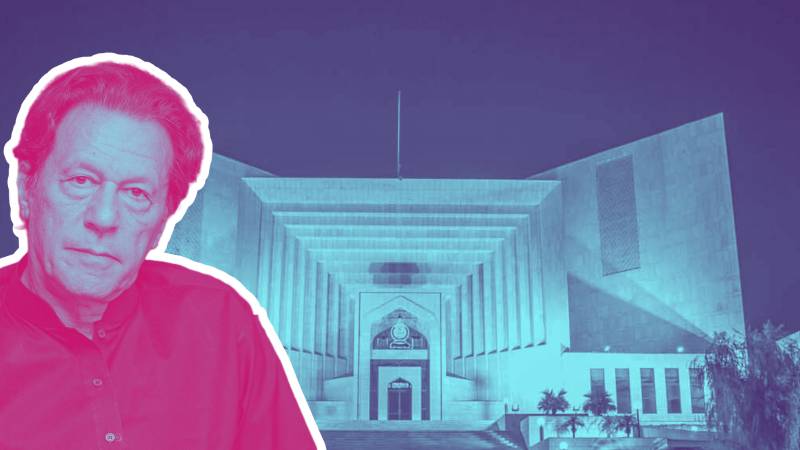
Pakistan Tehreek-e-Insaf (PTI) founder Imran Khan Monday challenged objections raised by the Supreme Court's registrar over the former's petition related to elections in NA-89 Mianwali-I and NA-122 Lahore-VI.
As nomination papers of candidates for the Feburary 8 elections were accepted, returning officers (RO) had on December 29 rejected nomination papers filed by Imran Khan. The grounds presented for rejecting his nomination papers included: Imran Khan owed social security dues worth Rs3.689 million to the Punjab Employees' Social Security Institution (PESSI).
Other grounds cited for the rejection included Imran Khan's conviction in the Toshakhana case and subsequent five-year disqualification.
Imran appealed the decision of the ROs, but the election tribunals upheld the decisions they had made.
Later, the Lahore High Court (LHC) also upheld the RO decision when Imran approached it to challenge the Election Tribunal's decision.
When the matter landed in the Supreme Court, its registrar objected to Imran Khan's appeal.
Advocate Uzair Karamat Bhandari has now filed a chamber appeal on behalf of Imran Khan. He has requested the top court to set aside registrar'sthe decision from February 1 to raise objections.
The application urged the top court to assign a number to the appeal and fix it for hearing.
The petition contended that the objections raised by the registrar were against the applicable law and facts on the record and, therefore, are liable to be set aside.
It further contended that the language used in the decision shows that it was a generic order which had been issued without critically reviewing the petition. It added that a civil petition did not attract the principle of laches.
"It is noteworthy that the certified copy was received in Lahore, and the civil petition was filed one day later in Islamabad. Therefore, it is clear from this sequence of events, there was no delay on part of the appellant, and the question of laches simply does not arise," Bhandari's submission argued.
"It is clear that mere delay in approaching the court is not enough to attract the principle of laches. Some prejudice to the opposite party is also required, which, self-evidently, is not the case here. However, the institution officer has ignored this principle. From a bare reading of the Impugned Order, it is evident that the institution officer has returned the civil petition on a legally unsustainable ground."
The application further contended that an objection based on the principle of laches does not relate to the entertainability of a civil petition but is one about its maintainability.

